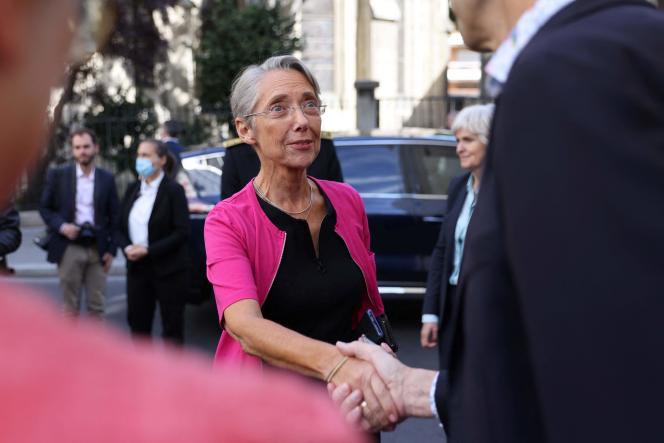This is one of the main concerns of the French, at a time when inflation continues to climb. According to INSEE, it increased by 5.2% from May 2021 to May 2022. Distilted for several weeks, the next measures to support household purchasing power must be ratified in two pieces of legislation, including a corrective finance. Here’s a rundown of what the executive is planning.
Energy: fuel discount, price shield and transport premium
The government has decided to extend at least until the end of August the fuel discount of 15 to 18 cents (in mainland France), introduced since April 1. In an interview with Les Echos, Bruno Le Maire mentioned an extension until December. “We are therefore ready to reach out to the responsible oppositions: why not consider extending the 18 cent rebate until the end of the year, if economic conditions require it, rather than embarking on measures extremely expensive taxes,” he asks. Some 3 billion euros were budgeted for the period from April to June, which will therefore have to be supplemented in the amending finance law.
In September or October, a device more targeted at “big riders” must take over.
In addition, the extension until the end of the year of the tariff shield for electricity and gas (capping their price) has been approved, for a cost estimated at more than 14 billion euros for the year 2022 , according to an estimate from Bercy last March. This amount may change according to variations in the price of gas.
Finally, the ceiling of the tax-free individual transport bonus that the employer can pay to the employee will increase from 200 to 400 euros for 2022 and 2023, and will be cumulative with the compulsory payment of 50% of the subscription to public transport. .
Basic pensions and social benefits
Retirement and disability pensions under the basic schemes will be increased by 4% from July 1. This increase, combined with that of just over 1% in January, is approaching the level of inflation, which reached 5.2% in May. According to information from Le Monde, this is a budgetary effort of around 6.5 billion euros in 2022, then 1.5 billion in the 2023 financial year.
Certain family benefits and social minima, namely the active solidarity income (RSA), the allowance for disabled adults (AAH) and the solidarity allowance for the elderly (ASPA), will also be increased by 4%, according to a part of the purchasing power bill consulted by AFP.
Some social benefits had already been increased by 1.8% in April. According to Les Echos, these upgrades would cost 8 billion euros until April 2023.
Index point increase
Civil servants will know on Tuesday the level of the increase in the value of the index point which serves as the basis for their remuneration. Public service unions are asking for between 3% (for the CFDT) and 25% (for FO). A 1% increase would cost the state and communities 2 billion euros per year, according to the government.
Tripling of the Macron bonus
The ceiling of the exceptional purchasing power bonus, tax-exempt and desocialised, known as the Macron bonus, will be tripled. Companies will therefore be able to pay up to 3,000 euros to their employees, and even up to 6,000 euros for those who have set up a profit-sharing or participation scheme. The average level of this bonus was only 506 euros per employee in 2021, against 1,000 euros authorized, according to the Ministry of Public Accounts.
Reduction in self-employed contributions
A reduction in the contributions of the self-employed is also planned. This measure, which aims to achieve greater equity between the contributions of employees and those of the self-employed, should allow the latter to earn 550 euros per year for a person whose income is equivalent to the minimum wage.
The increase in the rent index
The benchmark rent index will increase by 3.5% in July and then remain stuck at this level for a year. This measure is presented by the government as a compromise between the interests of tenants and those of landlords. Personalized housing aid (APL) will also be increased by 3.5%.
Abolition of the audiovisual license fee
The abolition of the audiovisual license fee will finally take effect next fall, with a gain for households of 138 euros, i.e. a total shortfall of more than 3 billion euros, which the State promises to compensate with broadcasters. public. This deletion led to a public broadcasting strike on Tuesday, June 28.
Help for students
Prime Minister Elisabeth Borne has asked her government to work on measures for students. An extension of the university restaurant ticket at 1 euro is in the pipeline.
The creation of a food check
According to the daily Les Echos, a food check of 100 euros, plus 50 euros per dependent child, should be paid to 9 million households, for an overall cost of 1 billion euros. The recipients of the RSA, the AAH, the minimum old age and the APL would be concerned. In 2020, during the Covid-19 crisis, a similar bonus of 150 euros per adult and 100 euros per child concerned just over 4 million households.














